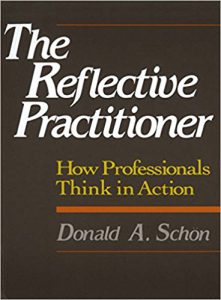 When I was in high school, the most revelatory book I read was whatever I had just finished. Its insights were my insights and I shared them with whoever was in my vicinity. This annoyed my father for certain and likely most of my classmates, friends, and family.
When I was in high school, the most revelatory book I read was whatever I had just finished. Its insights were my insights and I shared them with whoever was in my vicinity. This annoyed my father for certain and likely most of my classmates, friends, and family.
As I acquired a bit more life experience to go with the words on the pages passing before my eyes, my assessments became more cautious. Any book can produce a moment of insight. What I’ve come to value is a book whose influence is more lasting and pervasive. This influence reveals itself as I find myself adopting new frames and pushing a title on my friends and colleagues. When a book gives me a new lens on the world and I find myself looking through it more routinely, I know that I’m on to something.
On that score “The Reflective Practitioner: How Professionals Think In Action†by the late Donald Schon ranks among my top ten. I stumbled on it in the late 1980s during the early days of my Ph.D. studies. The title caught my eye in Wordsworth, a bookstore that occupied a prominent spot in Harvard Square and in my household budget. It offered a label for what I was becoming and provided a bridge for a gulf I was trying to cross.
The essence of Schon’s argument is that professionals operate by building theories of practice of how their corner of the world works. Like good scientists they test their theories against the real world they operate in and on.
The best professionals do this explicitly and mindfully. They make the time to both do their work and to reflect on their work. Reflective practitioners acquire experience and actively engage in making sense of that experience.
This process allows two things. It offers a way to introduce new knowledge and ideas into practice. New ideas and theory become important when we aren’t satisfied with accepted practice. Second, it makes clear that what happens in practice determines whether new knowledge and ideas stick. Reflective practice is a way to achieve both/and possibilities instead of treating theory and practice as an either/or question.
This notion has become a unifying thread in my own work and practice since then. We generally get better at whatever we do through the accumulation of experience. Rather than simply accumulate experience, however, we are more effective if we develop parallel skill at actively making sense out of our experience.